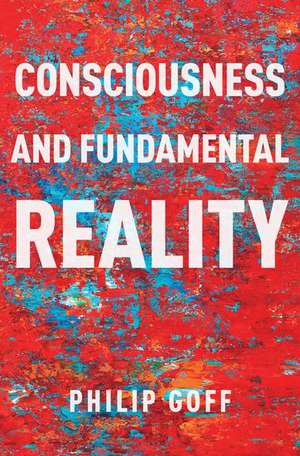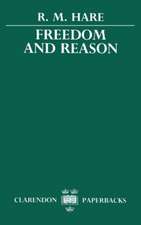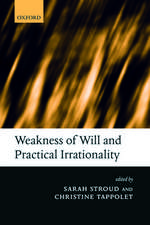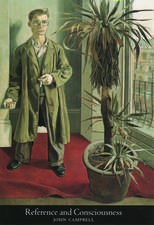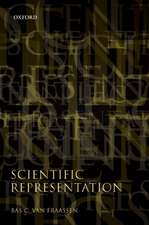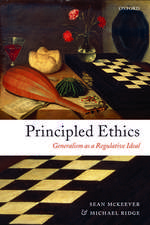Consciousness and Fundamental Reality: Philosophy of Mind Series
Autor Philip Goffen Limba Engleză Hardback – 14 sep 2017
| Toate formatele și edițiile | Preț | Express |
|---|---|---|
| Paperback (1) | 140.63 lei 3-5 săpt. | +16.68 lei 6-10 zile |
| Oxford University Press – 18 ian 2024 | 140.63 lei 3-5 săpt. | +16.68 lei 6-10 zile |
| Hardback (1) | 534.53 lei 10-16 zile | |
| Oxford University Press – 14 sep 2017 | 534.53 lei 10-16 zile |
Din seria Philosophy of Mind Series
- 13%
 Preț: 597.31 lei
Preț: 597.31 lei - 28%
 Preț: 424.05 lei
Preț: 424.05 lei - 7%
 Preț: 178.74 lei
Preț: 178.74 lei - 21%
 Preț: 338.16 lei
Preț: 338.16 lei -
 Preț: 368.81 lei
Preț: 368.81 lei - 26%
 Preț: 559.15 lei
Preț: 559.15 lei -
 Preț: 252.15 lei
Preț: 252.15 lei - 14%
 Preț: 443.36 lei
Preț: 443.36 lei - 28%
 Preț: 375.61 lei
Preț: 375.61 lei -
 Preț: 281.31 lei
Preț: 281.31 lei - 27%
 Preț: 657.29 lei
Preț: 657.29 lei - 10%
 Preț: 271.94 lei
Preț: 271.94 lei - 9%
 Preț: 449.67 lei
Preț: 449.67 lei - 8%
 Preț: 224.65 lei
Preț: 224.65 lei - 8%
 Preț: 194.74 lei
Preț: 194.74 lei - 7%
 Preț: 190.27 lei
Preț: 190.27 lei - 7%
 Preț: 198.58 lei
Preț: 198.58 lei -
 Preț: 322.41 lei
Preț: 322.41 lei - 30%
 Preț: 552.07 lei
Preț: 552.07 lei - 30%
 Preț: 616.72 lei
Preț: 616.72 lei - 22%
 Preț: 496.37 lei
Preț: 496.37 lei -
 Preț: 247.39 lei
Preț: 247.39 lei -
 Preț: 319.49 lei
Preț: 319.49 lei - 30%
 Preț: 549.78 lei
Preț: 549.78 lei -
 Preț: 295.97 lei
Preț: 295.97 lei -
 Preț: 287.11 lei
Preț: 287.11 lei - 30%
 Preț: 614.59 lei
Preț: 614.59 lei -
 Preț: 229.93 lei
Preț: 229.93 lei - 22%
 Preț: 362.30 lei
Preț: 362.30 lei - 30%
 Preț: 582.93 lei
Preț: 582.93 lei - 11%
 Preț: 296.18 lei
Preț: 296.18 lei - 26%
 Preț: 585.39 lei
Preț: 585.39 lei - 17%
 Preț: 659.74 lei
Preț: 659.74 lei - 30%
 Preț: 551.01 lei
Preț: 551.01 lei - 25%
 Preț: 487.29 lei
Preț: 487.29 lei - 24%
 Preț: 448.68 lei
Preț: 448.68 lei - 11%
 Preț: 232.70 lei
Preț: 232.70 lei - 13%
 Preț: 512.78 lei
Preț: 512.78 lei - 25%
 Preț: 511.14 lei
Preț: 511.14 lei - 23%
 Preț: 720.56 lei
Preț: 720.56 lei
Preț: 534.53 lei
Preț vechi: 714.68 lei
-25% Nou
Puncte Express: 802
Preț estimativ în valută:
102.29€ • 111.08$ • 85.93£
102.29€ • 111.08$ • 85.93£
Carte disponibilă
Livrare economică 22-28 martie
Preluare comenzi: 021 569.72.76
Specificații
ISBN-13: 9780190677015
ISBN-10: 0190677015
Pagini: 304
Dimensiuni: 236 x 155 x 25 mm
Greutate: 0.54 kg
Editura: Oxford University Press
Colecția OUP USA
Seria Philosophy of Mind Series
Locul publicării:New York, United States
ISBN-10: 0190677015
Pagini: 304
Dimensiuni: 236 x 155 x 25 mm
Greutate: 0.54 kg
Editura: Oxford University Press
Colecția OUP USA
Seria Philosophy of Mind Series
Locul publicării:New York, United States
Recenzii
This book is an interesting and energetic exploration of Russellian monism, a position in philosophy of mind that has gained considerable attention in recent years because it promises to move us beyond the physicalist-dualist stand-off ... the book is honest, unflinching, imaginative and argumentative; in other words, a very good philosophy book.
This book contains some of the most important contributions to the metaphysics of consciousness in recent years. Philip Goff develops a sophisticated argument against materialism, and then explores the prospects for radical alternatives in considerable depth. He makes a strong case for panpsychism, the thesis that consciousness exists at a fundamental level of physical reality, and extends this to a case for cosmopsychism, the thesis that the universe as a whole is conscious. Anyone interested in the philosophical problem of consciousness should pay close attention to his ideas.
Goff has produced a grand piece of speculative metaphysics, in the tradition of Leibniz, Spinoza and Unger. It is also probably the best single piece of work emerging from the recent bloom of interest in Russellian monist views of consciousness. Starting with plausible and well-defended premises, he argues for a daring conclusion that many will find difficult to accept; yet, he makes a compelling case that there is no easy way to resist it. Figuring out how to respond to his rigorous and thorough arguments will be highly instructive (and fun!) for anyone with an interest in metaphysically-oriented philosophy of mind.
This book will quickly become a reference point for philosophical discussions of consciousness. Philip Goff lays out the issues with precision and cuts through to the heart of the latest philosophical technicalities. He also writes beautifully and advances a number of strikingly novel theses. No philosopher interested in consciousness can afford to ignore Consciousness and Fundamental Reality.
In an era of increasing specialization and "small ball" philosophy, Philip Goff's Consciousness and Fundamental Reality comes as a welcome antidote. He defends a grand metaphysical vision of the world, constitutive cosmopsychism, according to which the universe as a whole is conscious, and everything else is grounded in its evolving conscious state. Yes, this view is revisionary. But all views on the mind-body problem are revisionary including orthodox physicalism. Goff develops a number of powerful arguments against the alternatives as well as a positive case for his cosmopsychism. His discussion demands and will repay our close attention.
This book contains some of the most important contributions to the metaphysics of consciousness in recent years. Philip Goff develops a sophisticated argument against materialism, and then explores the prospects for radical alternatives in considerable depth. He makes a strong case for panpsychism, the thesis that consciousness exists at a fundamental level of physical reality, and extends this to a case for cosmopsychism, the thesis that the universe as a whole is conscious. Anyone interested in the philosophical problem of consciousness should pay close attention to his ideas.
Goff has produced a grand piece of speculative metaphysics, in the tradition of Leibniz, Spinoza and Unger. It is also probably the best single piece of work emerging from the recent bloom of interest in Russellian monist views of consciousness. Starting with plausible and well-defended premises, he argues for a daring conclusion that many will find difficult to accept; yet, he makes a compelling case that there is no easy way to resist it. Figuring out how to respond to his rigorous and thorough arguments will be highly instructive (and fun!) for anyone with an interest in metaphysically-oriented philosophy of mind.
This book will quickly become a reference point for philosophical discussions of consciousness. Philip Goff lays out the issues with precision and cuts through to the heart of the latest philosophical technicalities. He also writes beautifully and advances a number of strikingly novel theses. No philosopher interested in consciousness can afford to ignore Consciousness and Fundamental Reality.
In an era of increasing specialization and "small ball" philosophy, Philip Goff's Consciousness and Fundamental Reality comes as a welcome antidote. He defends a grand metaphysical vision of the world, constitutive cosmopsychism, according to which the universe as a whole is conscious, and everything else is grounded in its evolving conscious state. Yes, this view is revisionary. But all views on the mind-body problem are revisionary including orthodox physicalism. Goff develops a number of powerful arguments against the alternatives as well as a positive case for his cosmopsychism. His discussion demands and will repay our close attention.
Notă biografică
Philip Goff is Professor of Philosophy at Durham University. His research focuses on consciousness and the ultimate nature of reality. Goff is also the author of Galileo's Error: Foundations for a New Science of Consciousness (Pantheon 2019), Why? The Purpose of the Universe (OUP 2024), and co-editor of Is Consciousness Everywhere? Essays on Panpsychism (Imprint Academic, 2022). Goff has published many academic articles, as well as writing extensively for newspapers and magazines, including Scientific American, The Guardian, Aeon, and the Times Literary Supplement.
